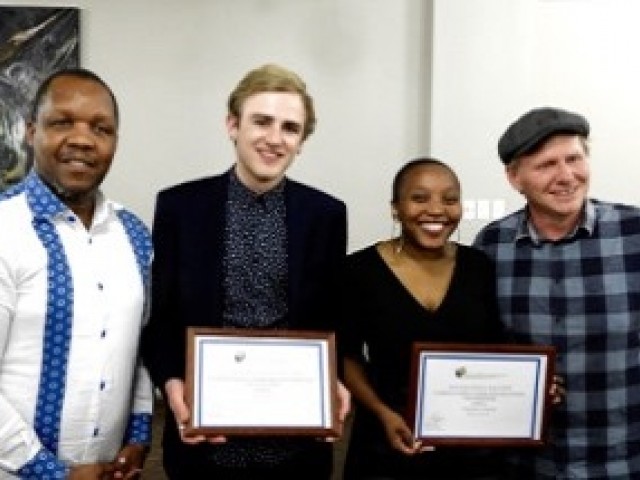UP hosts nearly 200 politics scholars at national Political Studies conference
16 October 2018 by Shakira Hoosain
Nearly 200 scholars from across South Africa, Africa, Asia and Europe gathered at the University of Pretoria recently for the 14th biennial conference of the South African Association of Political Studies (SAAPS). The three-day conference centred on change and continuity in politics, development and international relations in Africa and the world, and was hosted by UP’s Department of Political Sciences in the Faculty of Humanities.
This was the first time UP hosted the conference since the early 1990s. Prof Siphamandla Zondi, head of UP’s Department of Political Sciences, was elected the new SAAPS President, for a term running until the next conference in 2020.
SAAPS is the official body of the academic disciplines of Political Science and International Relations in South Africa. Its primary international affiliations are the International Political Science Association (IPSA), the African Association of Political Science (AAPS), and the World International Studies Committee (WISC).
The conference featured an array of reputable keynote and plenary speakers, including the president of the International Political Science Association (IPSA), Prof Marianne Kneuer of the University of Hildesheim in Germany, who spoke about rethinking democracy and development in Africa.
Prof Vasu Reddy, Dean of UP’s Faculty of Humanities, opened the conference and highlighted its importance in a world where global politics is increasingly characterised by nationalist tendencies and the balance of world power is shifting to the East. Zooming in on South Africa’s current political status quo, Prof Reddy said, “Political accountability requires concerted efforts in strengthening the checks and balances on power; repairing the trust between citizens and the state; examining the weakening of non-racialism and evidence of racialised inequalities and racism; the question of land – not as an intellectual issue, but a material and visceral concern; gender justice, or lack thereof; and, underpinning all of these – without being insular – how we reimagine ourselves as a nation with many identities.”
Conference chair Prof Chris Isike of UP’s Department of Political Sciences described the SAAPS biennial conference as “a veritable platform for realising SAAPS objectives of promoting knowledge and understanding of national and international affairs, as well as for performing empowerment functions through encouraging emerging and student scholarship”. To this end, several young scholars from universities across South Africa presented well-received papers, including five honours, three master’s and two doctoral UP students.
Prof Isike also reiterated that the conference was of strategic significance in strengthening UP’s status as a research-intensive university. According to a number of participants surveyed at the conference, the conference was very well organised, and was outstanding in the annals of SAAPS conferences.
“Overall, the quality of the parallel sessions and round-tables on offer was very good, and the presentations elicited interesting debates around change and continuities in Africa’s politics and development,” says Prof Isike.
The next SAAPS conference will be held at Rhodes University in 2020.
